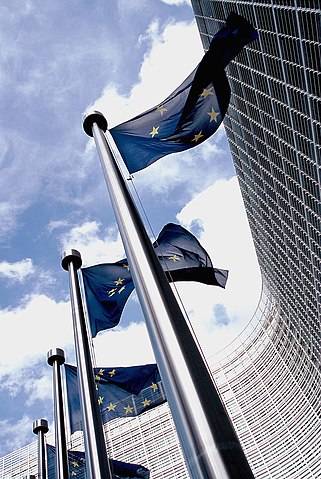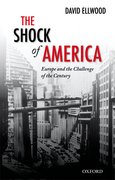The world famous Edinburgh International Festival has kicked off, beginning three weeks of the best the arts world has to offer. The Fringe Festival has countless alternative, weird, and wacky events happening all over the city, and the Edinburgh International Book Festival is underway. Throughout the Book Festival we’ll be bringing you sneak peeks of our authors’ talks and backstage debriefs so that, even if you can’t make it to Edinburgh this year, you won’t miss out on all the action.
By David Ellwood
At first sight it looked like an incongruous debate for Edinburgh. The only discussion dedicated to Europe included three unusual debaters. Matthias Politycki is a distinguished German novelist and literary critic, whose latest book portrays London, its pubs, and its culture of real ale. José Rodrigues Dos Santos is one of Lisbon’s best-known political commentators, but also a man who writes novels which are part-spy thrillers, part-science fiction. (Both authors enjoy English translations of at least some of their work.) And finally myself, on the promotional tour for The Shock of America, on the history of Europe’s effort to cope with America’s power as a force for innovation — from Buffalo Bill to Google, from Hollywood to Obama, etc. How to reconcile such different impulses and points of view?
Knowing that Book Festival audiences are discreet and tolerant folk, I tried to introduce the notion that the history of European integration couldn’t be understood without its American dimension. I pointed out that it was the Marshall Plan which turned European integration into a serious political and economic project, in fact it was the string attached to Marshall aid. Why? Because the Americans thought by caging Europe’s evil genie — nationalism — in a tight federal cage they would neutralize once and for all the forces which had produced two world wars and three totalitarianisms. They also thought that a united western Europe would be one best equipped to fight Soviet communism with economic weapons. I went on to point out that the Americans have always supported European integration and still do.

But I also tried to show that this great American push had ended up dividing Europeans more than uniting them, and that the dividing forces have indeed proven stronger than the uniting ones. This is largely because of the attitude of the British. As long as the British have remained so doggedly negative about the process in general, while the French and Germans have been so dedicated to it, the whole project has been hobbled. The British have long preferred their American connection, even as the Americans have told them, decade after decade, to stop moaning and get on the European bus.
However, I pointed out that Britain’s stubbornness on sovereignty was only the most extreme version of a form of behavior the rest in the EU all practice at some time or other. Specifically Paris and Berlin share with London the conviction that Brussels must never acquire more power than they imagine they possess as single nations in the world. This explains why the Euro project was born so misshaped, and why the Germans and the French hesitate still to take the decisive step towards combining their fiscal and monetary policies (and so re-launch their common currency).
Our Portuguese colleague, however, would have none of this. For him the Euro scheme was born from a wicked trade-off between the French and the Germans at the end of the Cold War. François Mitterrand had got support for his pet idea for relaunching French hegemony in Europe: monetary union. In return the French gave their consent to Helmut Kohl’s plan for instant German re-unification. The whole thing had only kept going by bluff and throwing cheap money at indigents like the Greeks, Italians, Spanish & co. The result was massive public debt, which would only be solved by defaults or massive inflation. No wonder the admirable German central bank said ‘no’ to such a prospect, with German memories of hyper-inflation (90 years ago). Only proper political unification could cope with such dilemmas, and this seemed totally unlikely as politicians were animals who only thought of the next election and their short-term advantage.
Like myself, Matthias Politiycki tried to add a broader, cultural dimension to all the efforts. This inevitably meant counting in the American challenge in all its forms, including popular and trash culture. He insisted that the Germans had long dreamed of a ‘United States of Europe’, but feared that they had wound up with their own version of Americanisation. Why some German poets even write in English, unapologetic for the rubbishy results they produced. There would always be an American question as well as a European one in Germany’s never-ending identity debates. The great shame was that Britain never offered any help in this search to create an alternative to the American pole. Always so negative and detached vis à vis Europe, when it came to the US, the Brits looked one of Donald Duck’s over-eager nephews. The best hope lay in the new generations which went through the Erasmus project, who travelled everywhere on low-cost airlines or rail tickets, who looked for work wherever it could be found.
When given its chance the audience — with very few of the afore-mentioned young people in it — soon supplied prompts for more debate. Wasn’t the EU a bureaucratic monster? Why couldn’t the whole thing be more democratic? What if Greece did default? Shouldn’t the Germans keep on shouldering the EU burden to expiate their guilt for the world wars they’d caused? (There were cries of “shame, shame” from other audience members when this thought was aired.) Between politics, monetary affairs and cultural questions, it was hard to find a central unifying thought or theme among all the notions. Perhaps a certain bemusement had crept in by the end. How could three such ‘experts’, all basically in favour of the European project, have come up with such disparate, even dissonant accounts of what had gone wrong and what the prospects might be? Let’s hope next year’s Book Festival can face a cheerier, clearer prospect when it looks across the Channel to Europa.
David Ellwood is the author of The Shock of America: Europe and the Challenge of the Century, Rebuilding Europe: Western Europe, America and Postwar Reconstruction, and Italy 1943-1945: The Politics of Liberation. The fundamental theme of his research – the function of American power in contemporary European history – has shifted over the years to emphasise cultural power, particularly that of the American cinema industry. He was President of the International Association of Media and History 1999-2004 and a Fellow of the Rothermere America Institute, Oxford, in 2006.
Subscribe to the OUPblog via email or RSS.
Subscribe to only politics and law articles on the OUPblog via email or RSS.
View more about this book on the ![]()
![]()
Logo courtesy of Edinburgh International Book Festival




Recent Comments
There are currently no comments.